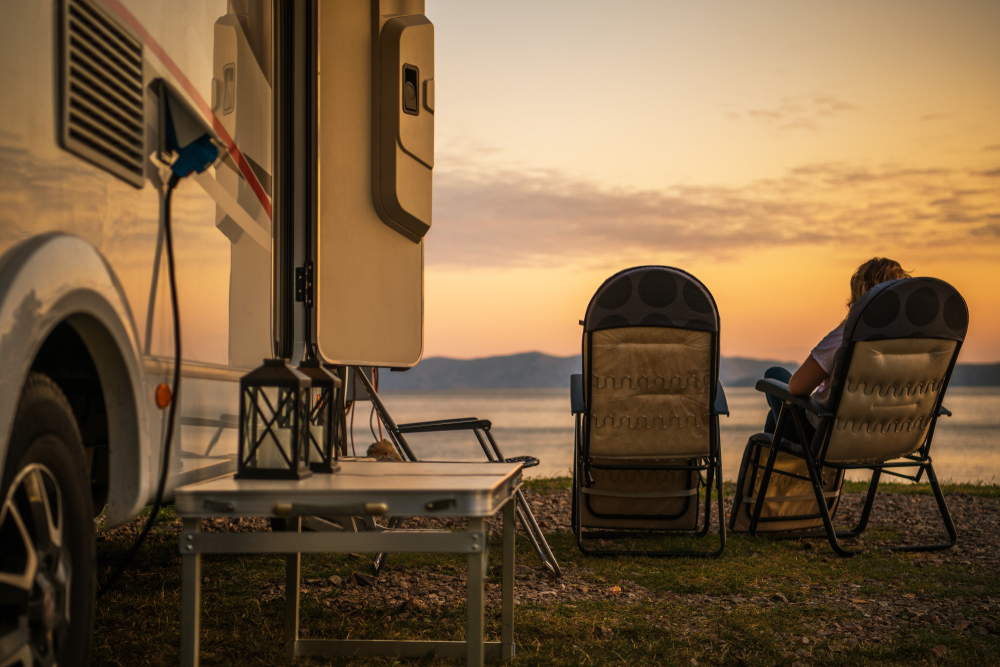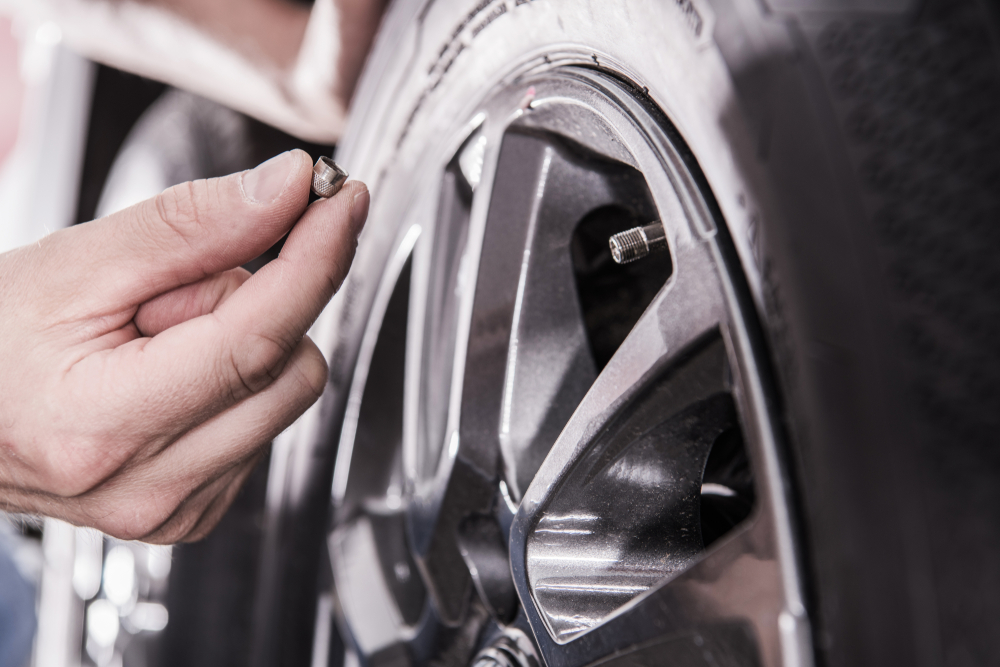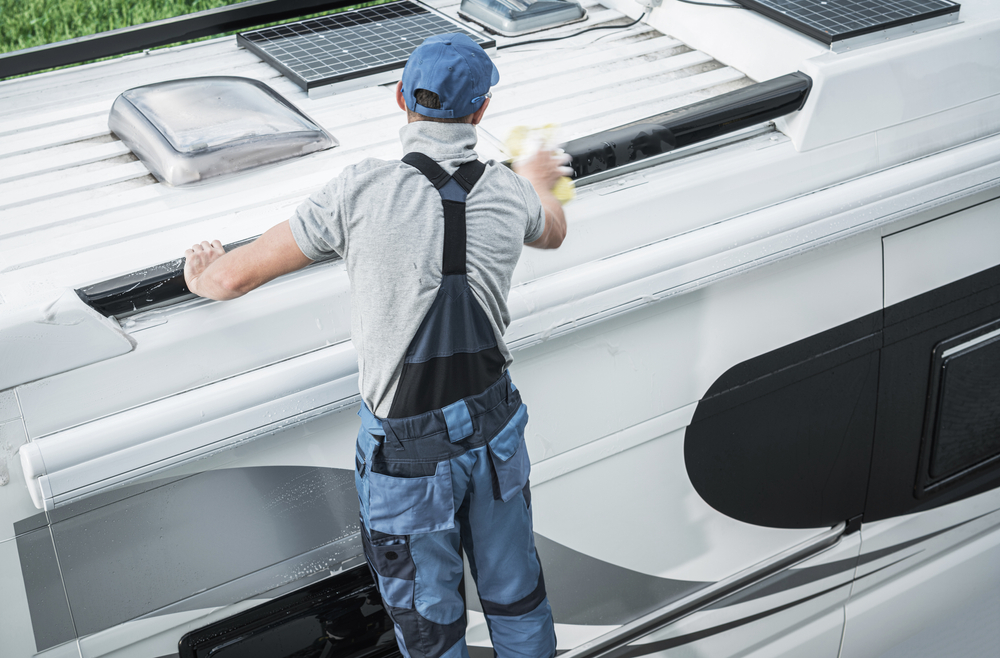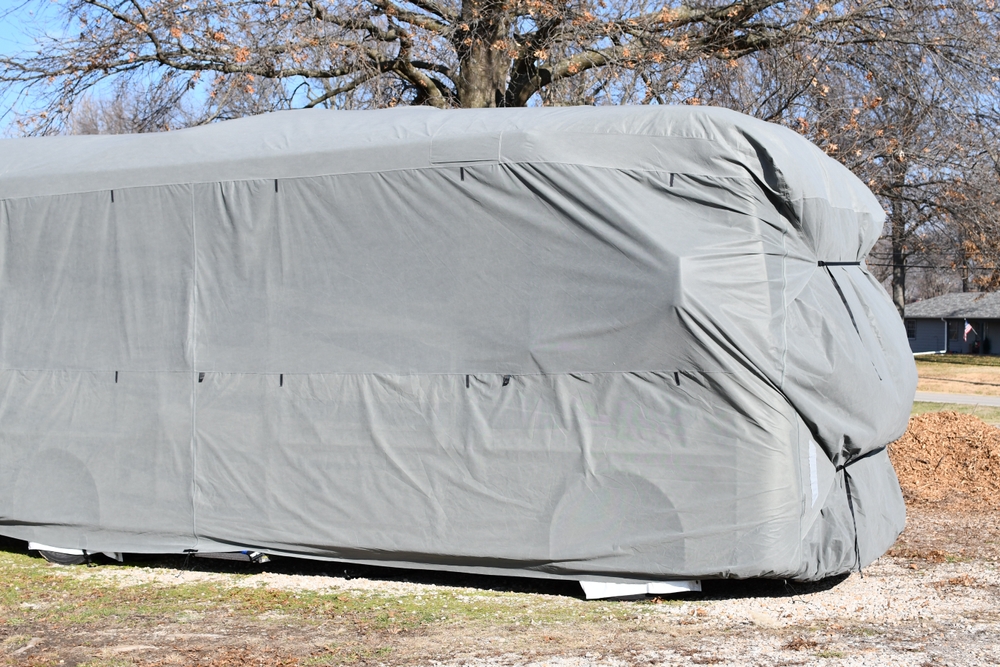
As an RV owner, you know your vehicle is a ticket to adventure across the United States! However, when it’s time to get back to “real life”, it’s important you store your RV as well and as safely as possible. This will not only preserve it in excellent condition but also, in the long run, save you a significant amount of money. To help you do that, the storage experts at Southern Self Storage put together the following actionable info about the top tips for storing your RV. If it’s important to you that your RV stays in great condition for years to come, read on.
Tips for Storing Your RV

Like any ordinary vehicle, the better you maintain your RV, the longer its usual lifespan will be. Below are many excellent tips to help you maintain your RV well and keep it in excellent condition while saving you some dough. Remember to always refer to your owner’s manual first before following any of these tips.
- Regular Inspections: Check out your RV’s roof, windows, and doors at least twice a year for cracks or gaps that might lead to leaks.
- Sealant Checks: To prevent water damage, check and reseal your RV’s roof and seams annually.
- Tires: Regularly check tire pressure and tread wear. Ensure your RV’s tires are properly inflated and replace them if they show signs of aging or wear, even if they have plenty of tread left.
- Tire Covers: Use tire covers when parked for extended periods.
- Battery: Check your RV’s battery levels and connections. Keep the battery charged and clean its terminals to prevent corrosion.
- Oil Change: Change the oil and filters at intervals recommended by your RV’s manufacturer. Run the generator regularly with a load to keep it in good working condition.
- Plumbing System Flush: Sanitize the water system and check for leaks at least once a year. Drain and flush the water heater annually.
- Appliance Checks: Regularly inspect and clean the refrigerator vents, air conditioner filters, and furnace. Ensure all appliances are in good working order.
- Slide-Out and Jacks Lubrication: Lubricate slide-out mechanisms and jacks as recommended to keep them operating smoothly.
- Exterior Cleaning: Wash the exterior of your RV regularly to prevent dirt and debris from causing damage.
- Awning Care: Clean and inspect your awning regularly, allowing it to dry completely before storing it to prevent mold and mildew.
- Interior Cleaning: Keep the interior clean and dry. Vacuum and mop floors, clean surfaces, and ensure a moisture-free environment to prevent mold.
- Vent Covers: Install covers over vents to keep out rain while allowing ventilation, reducing the chances of moisture buildup inside.
- Food Removal: Remove all food, prop open refrigerator doors, and consider using moisture absorbers and rodent repellents.
- Electrical System Check: Regularly inspect your RV’s electrical system, including the power cord, batteries, and generator, to ensure no loose or damaged connections.
The Differences Between Long-Term vs Short-Term Storage for RVs
The difference between long-term and short-term storage for RVs is subtle but notable. One of the most significant differences between long-term and short-term storage Is the prep time you’ll need to prepare your RV for storage and the measures you’ll need to take to ensure your RV stays in excellent condition while stored. Only some measures must be taken if you’re storing it for a few weeks. However, storing your RV for a few months or longer demands more comprehensive preparation and, possibly, Indoor storage rather than outdoor storage. (See more below.)
What’s the Difference between Indoor and Outdoor Storage?
While the difference between long-term and short-term storage for RVs is relatively subtle, there’s a distinct contrast between indoor and outdoor RV storage. As you might imagine, indoor storage protects your RV from the weather, including rain, snow, the sun’s UV rays, etc. It also protects your RV from falling debris, damaging hailstones, and bird droppings, offering the best protection for your “home on wheels”.
While safe and secure, outdoor storage doesn’t protect your RV from inclement weather or things falling out of the sky. If you worry about your RV’s paint job, exterior finish, and tires, indoor storage is a better choice. Some self storage facilities also offer covered outdoor parking, which, while still technically outside, provides a roof to cover your RV and keep it better protected from the weather and falling debris.
Seasonal and Offseason RV Storage Tips

While seasonal and off-season RV storage is slightly different, both tips are relatively similar and will ensure your RV stays in excellent condition until your next adventure.
- If you’re storing your RV for a few weeks, removing the battery is unnecessary. Still, consider disconnecting the positive and negative battery cables to ensure the battery stays in good condition.
- If you’re storing for longer than a few weeks, removing your RV’s battery and placing it in a cool, dry place is preferable. Some RV owners bring their batteries home and put them on trickle chargers while storing their RV.
- Tire covers are an excellent idea, no matter how long you store your RV. When you consider that some RVs have upwards of 8, 10, or more tires, protecting them as well as possible is always a good idea. Tire covers will prevent damage from the sun’s UV rays, including damage from extreme heat and dry rot.
Should You Use an RV Cover?

If you plan to store your RV outside, a quality RV cover can provide several excellent benefits, including, as you might imagine, an extra layer of protection for your vehicle. An RV cover does come with several drawbacks. Below, we’ll look at the advantages and disadvantages of using an RV cover when storing your RV in a self-storage facility.
Advantages of an RV Cover
- Excellent protection from the elements, including rain, snow, and wind.
- Protection from dust and dirt as well as other debris.
- Fewer scratches and dings from falling debris, like branches, hail, and so forth.
- Better protection from pests, including mice, rats, squirrels, and insects.
- A cover preserves the value of your RV by protecting its exterior condition and appearance.
- While covered, your RV is more private and secure, as no one can see what’s inside.
Disadvantages of an RV Cover
- An RV can often trap moisture, which can lead to the potential growth of mold and mildew. This is especially true in humid areas of the country.
- An RV cover can be pretty expensive, depending on the size of your RV.
- Putting a cover on and removing it from a large RV can be difficult, especially if it’s windy or raining the day you need to put it on.
- RV covers, just like your RV itself, can get dirty and need to be cleaned, which can be a hassle.
- When you’re not using your RV cover, you’ll need to store it somewhere.
- Depending on the size of your RV, the cover may be heavy and require at least two people to remove and store it.
Store Your RV Safely and Securely with Southern Self Storage

After all is said and done, the best place to store your RV is with Southern Self Storage, the storage experts! With storage locations all over the southern parts of the United States, Southern is well-prepared to handle your RV, no matter its size. Southern offers RV storage at some of our locations, be sure to call ahead for options! When you’re ready, reserve your RV storage online with Southern, and it will be ready and waiting when you arrive to store your precious home on wheels!
